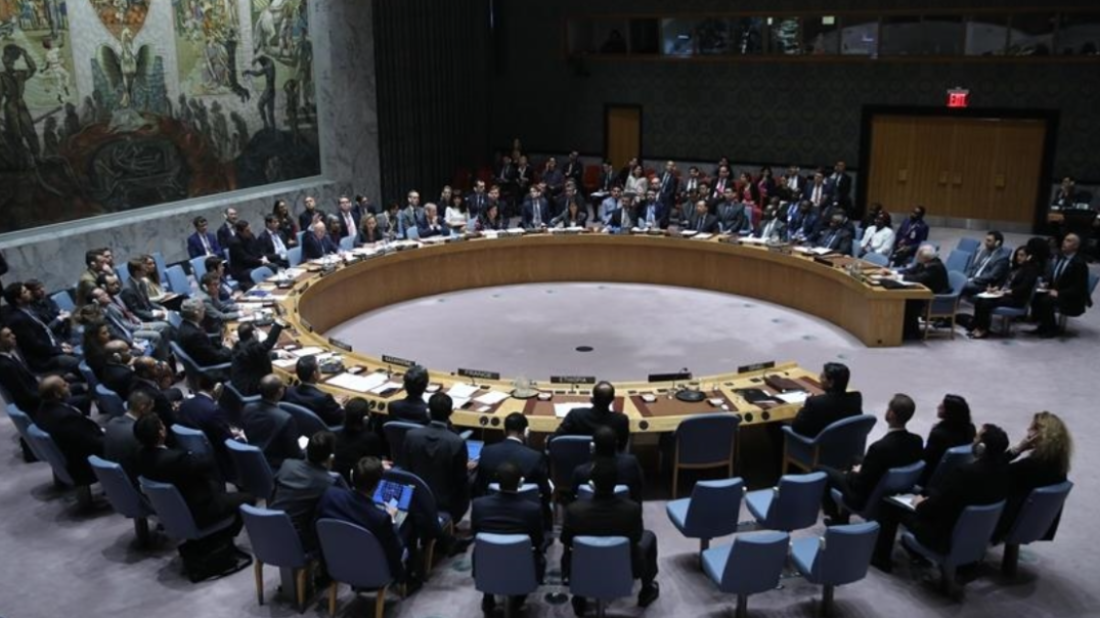Iran protest death toll rises to 6,126, rights group says
The death toll from nationwide protests in Iran has climbed to 6,126, according to the U.S.-based Human Rights Activists News Agency (HRANA)....

On Friday, the UN Security Council vetoed a draft resolution to extend the 2015 Joint Comprehensive Plan of Action (JCPOA) on Iran's nuclear program until April 18, 2026.
The draft, proposed by Russia and China, also aimed to delay the "snapback" mechanism of sanctions against Iran, which is set to take effect on September 28 after being triggered by France and the UK.
The resolution garnered only four votes in favor, with nine votes against and two abstentions.
Countries including the UK, France, Denmark, Slovenia, Sierra Leone, Panama, the U.S., Greece, and Somalia voted against it.
Before the vote, Russia's deputy envoy to the UN, Dmitry Polyansky, said the draft would provide "room for seeking an acceptable solution for all." He added that this was "a moment of truth for each member of the Security Council" and urged members to make the right decision.
China's deputy UN envoy, Geng Shuang, referred to the U.S. and Israel's strikes on Iran’s nuclear facilities, arguing that it complicated the issue. He emphasized that the draft resolution was not about choosing sides between Iran and the E3, but about allowing more time for diplomatic efforts and facilitating a political solution. Geng called for a vote in favor of the resolution to extend the agreement, promoting dialogue over division.
Following the vote, the German Foreign Office expressed support for the outcome on social media, calling the rejection of the resolution a clear endorsement of the snapback process. The snapback mechanism is set to go into effect at 8 p.m. EDT on Saturday, September 28. The E3, which includes the UK, France, and Germany, remains committed to seeking a diplomatic resolution.
The 2015 nuclear agreement placed limits on Iran’s nuclear activities, and Iran agreed to allow international inspections to ensure its program was for peaceful purposes. However, after the U.S. and Israeli attacks on Iran, Tehran suspended cooperation with the International Atomic Energy Agency (IAEA), accusing it of bias.
On August 28, the E3 triggered the snapback mechanism under UN Security Council Resolution 2231, which will reinstate sanctions in 30 days if Iran fails to comply with its obligations.
The death toll from nationwide protests in Iran has climbed to 6,126, according to the U.S.-based Human Rights Activists News Agency (HRANA).
France’s National Assembly has approved a bill banning access to social media for children under 15, a move backed by President Emmanuel Macron and the government as part of efforts to protect teenagers’ mental and physical health.
Israel has recovered the remains of the last remaining hostage held in Gaza, the military said on Monday, fulfilling a key condition of the initial phase of U.S. President Donald Trump's plan to end the war in the Palestinian territory.
The S&P 500 edged to a record closing high on Tuesday, marking its fifth consecutive day of gains, as strong advances in technology stocks offset a sharp selloff in healthcare shares and a mixed batch of corporate earnings.
South Korea has said it will uphold its trade agreement with the U.S. despite President Donald Trump’s announcement of higher tariffs on South Korean goods.
Iranian citizens and businesses are continuing to feel the impact of a nationwide internet shutdown imposed amid a sweeping crackdown on anti-government protests, with access to the global web still largely cut off more than two weeks later.
U.S. Secretary of State Marco Rubio said the Iranian government is likely weaker than at any point in recent history, warning that protests could reignite despite a violent crackdown that has killed thousands.
Severe storms have disrupted cargo flows across Europe, shutting terminals and slowing vessel movements for some of the world’s biggest carriers.
The Kremlin has reiterated that Volodymyr Zelenskyy is welcome in Moscow for talks with Vladimir Putin, stressing that any meeting must be fully prepared and aimed at achieving concrete results.
“This is a strategic wake-up call for all of Europe” French President Emmanuel Macron warned on Wednesday, 28 January, as he hosted Danish Prime Minister Mette Frederiksen and Greenland’s premier, Jens-Frederik Nielsen, in Paris to reaffirm France’s support for Greenland’s sovereignty.
You can download the AnewZ application from Play Store and the App Store.

What is your opinion on this topic?
Leave the first comment